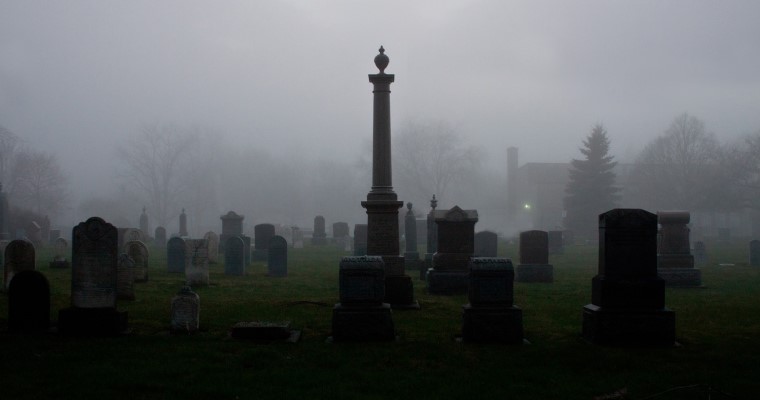In preparation for this last week’s sermon on Ecclesiastes 11:7-12:8, I came across a work by the nineteenth century English essayist, William Hazlitt. Hazlitt was not a Christian but a child of the Enlightenment and its belief in the power of human reason and progress. Nevertheless, Hazlitt’s essay, On the Feeling of Immortality in Youth, provides strong evidence for why the teaching of Ecclesiastes continues to be so important and relevant.
To help us think more about the truths we heard on Sunday, here is the first part of Hazlitt’s essay. You can find the rest at http://www.blupete.com/Literature/Essays/Hazlitt/FeelingImmortality.htm.
No young man believes he shall ever die. It was a saying of my brother’s and a fine one. There is a feeling of Eternity in youth which makes us amends for everything. To be young is to be as one of the Immortals. One half of time indeed is spent — the other half remains in store for us with all its countless treasures, for there is no line drawn, and we see no limit to our hopes and wishes. We make the coming age our own — “The vast, the unbounded prospect lies before us.” Death, old age, are words without a meaning, a dream, a fiction, with which we have nothing to do. Others may have undergone, or may still undergo them — we “bear a charmed life,” which laughs to scorn all such idle fancies.
As, in setting out on a delightful journey, we strain our eager sight forward, “Bidding the lovely scenes at distance hail,” and see no end to prospect after prospect, new objects presenting themselves as we advance, so in the outset of life we see no end to our desires nor to the opportunities of gratifying them. We have as yet found no obstacle, no disposition to flag, and it seems that we can go on so for ever. We look round in a new world, full of life and motion, and ceaseless progress, and feel in ourselves all the vigour and spirit to keep pace with it, and do not foresee from any present signs how we shall be left behind in the race, decline into old age, and drop into the grave.
It is the simplicity and, as it were, abstractedness of our feelings in youth that (so to speak) identifies us with Nature and (our experience being weak and our passions strong) makes us fancy ourselves immortal like it. Our short-lived connexion with being, we fondly flatter ourselves, is an indissoluble and lasting union. As infants smile and sleep, we are rocked in the cradle of our desires, and hushed into fancied security by the roar of the universe around us — we quaff the cup of life with eager thirst without draining it, and joy and hope seem ever mantling to the brain — objects press around us, filling the mind with their magnitude and with the throng of desires that wait upon them so that there is no room for the thoughts of death. We are too much dazzled by the gorgeousness and novelty of the bright waking dream about us to discern the dim shadow lingering for us in the distance.
Nor would the hold that life has taken of us permit us to detach our thoughts that way, even if we could. We are too much absorbed in present objects and pursuits. While the spirit of youth remains unimpaired, ere “the wine of life is drunk,” we are like people intoxicated or in a fever, who are hurried away by the violence of their own sensations: it is only as present objects begin to pall upon the senses, as we have been disappointed in our favourite pursuits, cut off from our closest ties that we by degrees become weaned from the world, that passion loosens its hold upon futurity, and that we begin to contemplate as in a glass darkly the possibility of parting with it for good.
Till then, the example of others has no effect upon us. Casualties we avoid; the slow approaches of age we play at hide and seek with. Like the foolish fat scullion in Sterne, who hears that Master Bobby is dead, our only reflection is, “So am not I!” The idea of death, instead of staggering our confidence, only seems to strengthen and enhance our sense of the possession and enjoyment of life. Others may fall around us like leaves, or be mowed down by the scythe of Time like grass: these are but metaphors to the unreflecting, buoyant ears and overweening presumption of youth. It is not till we see the flowers of Love, Hope and Joy withering around us, that we give up the flattering delusions that before led us on, and that the emptiness and dreariness of the prospect before us reconciles us hypothetically to the silence of the grave.
Questions to Consider:
1. Hazlitt’s essay goes on to conclude that, once the illusions of youth are shattered, life becomes increasingly miserable (of course, Hazlitt also nowhere takes God into account). How does the teaching of Ecclesiastes concur or differ with Hazlitt’s conclusion?
2. Hazlitt suggests that the happy intoxications of youth make young people numb to the hard realities of life. Why should Christians believe that God’s wisdom in Ecclesiastes can still reach and transform the naïve young?
3. Which best describes your own view of life: blissful ignorance, disillusioned misery, or sober contentment?

